Linda Housman
Daily Stormer
March 22, 2015
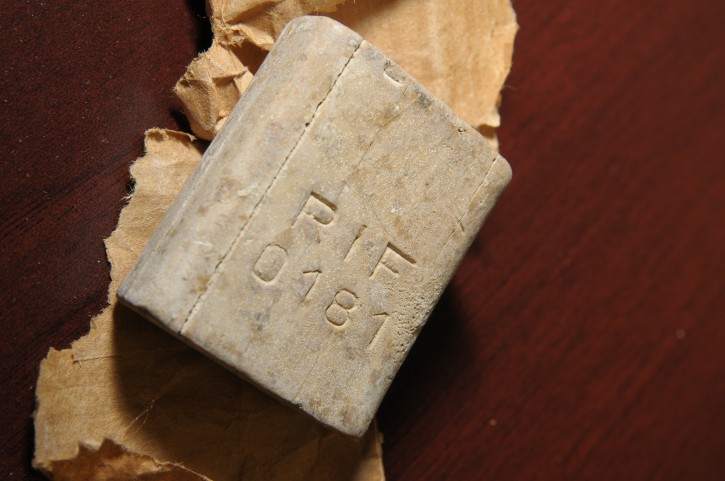
Last week a story about “Dutch prosecutors blocking the sale on eBay of a bar of soap which its owners claimed was made from the fat of Jewish people murdered at a Nazi death camp” went viral in international news outlets. The truth however is more than a little bit different. The actual website was not eBay, but a Dutch advertising site called Marktplaats; this is just the smallest of the lies surrounding the case. The antiquities vendor who offered the soap, Mr. Teake A. Visser, in fact said he is positive that the soap does not contain any human/Jewish remains whatsoever, and he finds his conviction supported by the results of thorough -including Jewish – research on the so-called Jew soap.
Nevertheless, both the media and several Dutch Zionist controlled foundations and associations were eager to pillory the collector. The Jewish director of the Netherlands-based Centre for Information and Documentation on Israel, Esther Voet, said that the only way to stop such vendors was “to name and shame them.” In a feeble attempt to not only protect his reputation from the Zionist hawks, but also the safety of his young children, Visser explicitly asked the press not to publish his – quite unique – name in the media, but to identify him as a 41-year-old military memorabilia collector from the North Frisian town of Dokkum instead. However, Leeuwarder Courant, the largest news site in the Dutch province of Frisia, nonetheless published his full name in an article on March 4, followed by national left-wing daily Volkskrant.
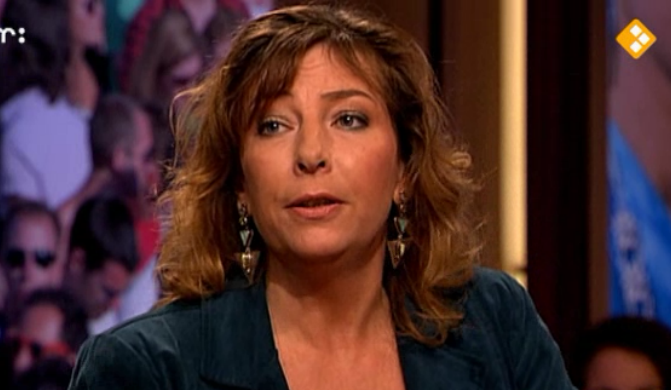
Apart from the already extensive non-pecuniary damage, Visser now also finds himself banned from exhibiting his collection of military mementos at a so-called militaria market in the Dutch village of ‘t Harde, which was held on March 14. The organizer of the event, Mr. Gerrit Bosch, said that “in proper consultation with Mr. Visser, we have decided that he will not be present at the market pending the investigation,” which “agreement” for Visser automatically includes the loss of a part of his income. Other similar Dutch markets most certainly will take the same decision.
It is unlikely that Visser will ever see the soap again, or even will be personally informed about the results of the forensic tests to be executed by the Netherlands Forensic Institute. The collector told the police that “it is my soap, so I’d like to be provided with the results of the tests on it.” The police however were reluctant to make such a promise, and only told Visser that the results of the forensic tests are to be expected “in weeks or months.” When being asked why he sells “war materials from the enemy,” Visser replied by saying that people should take the time to investigate the other side of the story, as there is “more to WWII than the big bad Germany against the good Allied Forces.”
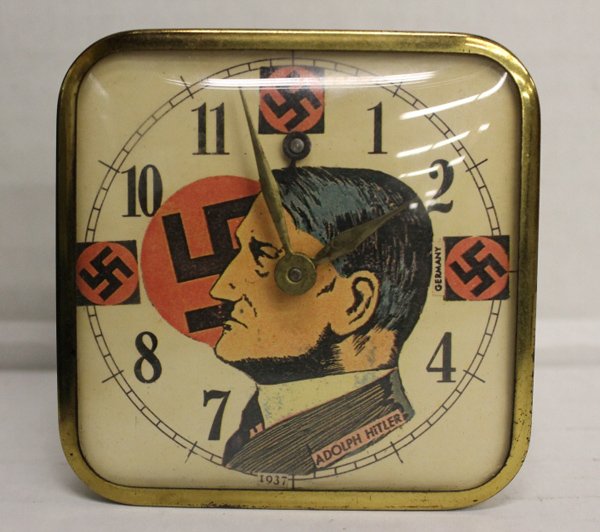
The collector also believes that advertising site Marktplaats applies double standards. “They claim to have a team of watch dogs who guarantee the removal of ads containing prohibited subjects and items, including human remains, within a few hours. However, I have seen several advertisements of human tissues that apparently are tolerated by Marktplaats.”
Over the past few years, Dutch militaria markets have increasingly become subject to “investigators.” During such event in the town of Huizen in May 2014, the media demanded they be allowed to take pictures of the offered goods, even though the golden rule for these events is not to take pictures of the merchandise. In yet another incident at the market in Huizen on March 9, media claimed that “some copies of the forbidden book Mein Kampf were offered for sale.” According to Dutch news site RTV Noord-Holland, the Mayor of Huizen has launched an investigation, and Mr. Arthur Graaff of the Dutch Association of Anti-fascists has reported the incident to the police.
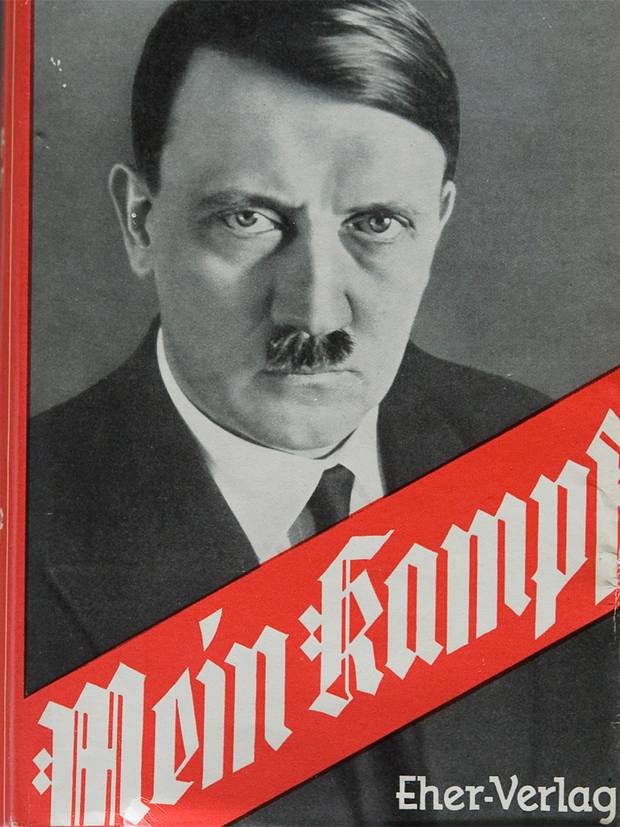
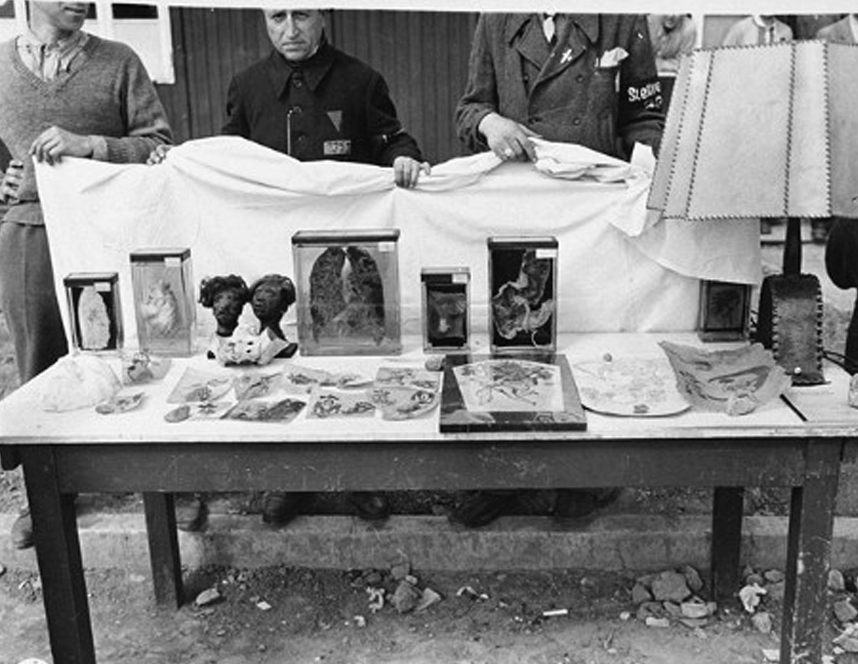
Graaff has been a notorious witch hunter of what he calls (neo-)Nazi fascists and their ideology and symbols for years now, and he was also the one who tipped the police about Visser’s “Jew soap” last week. In Dutch newspaper Telegraaf, he stated that Visser “possesses more macabre stuff,” such as “dentures, toothbrushes and eyeglasses from [Dutch Concentration] Camp Westerbork,” which, according to Graaff, “Visser found in the neighbourhood of the camp.” Visser however refuted Graaff’s claims as pure lies, saying that in the past he indeed took some pictures of certain materials near Westerbork and placed them on his website, but never took any of those objects home.
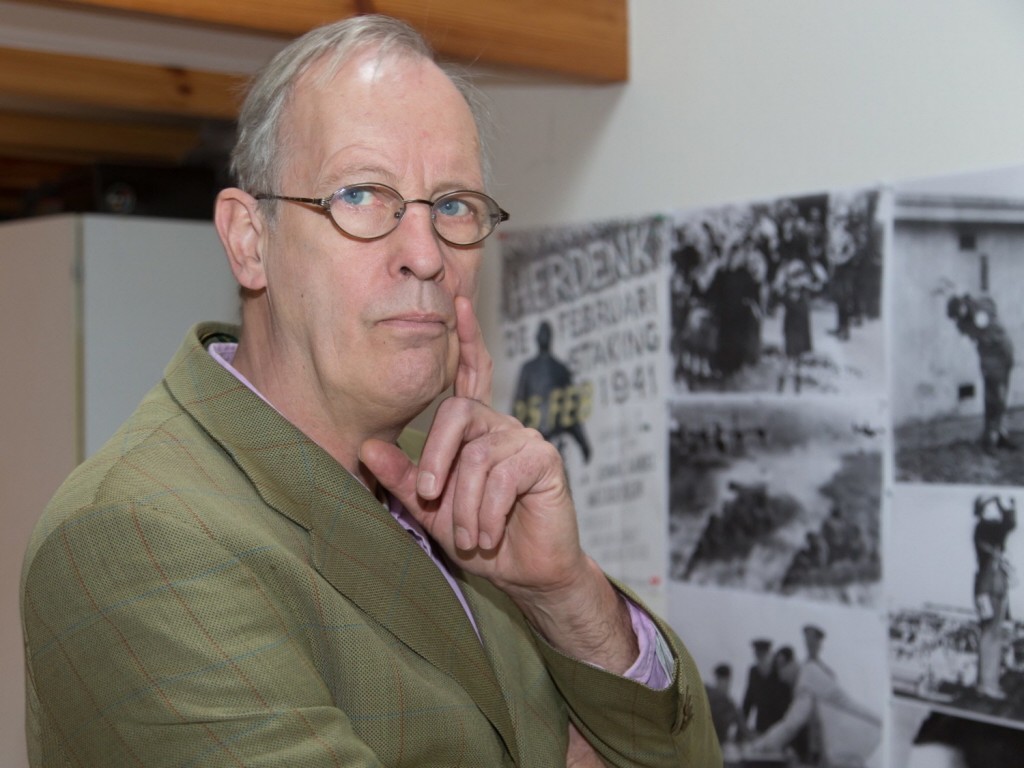
In 2012, Graaff’s Association of Anti-fascists won a court case against a Dutch citizen who was in possession of what the Dutch language verdict describes as “replicas of daggers of the Nazi regime.” The verdict emphasizes that “the daggers themselves are not by definition prohibited,” but it were the inscriptions Arbeid adelt and Meine Ehre heist Treue as well as the swastika symbol that made the court decide to let the government seize the objects.
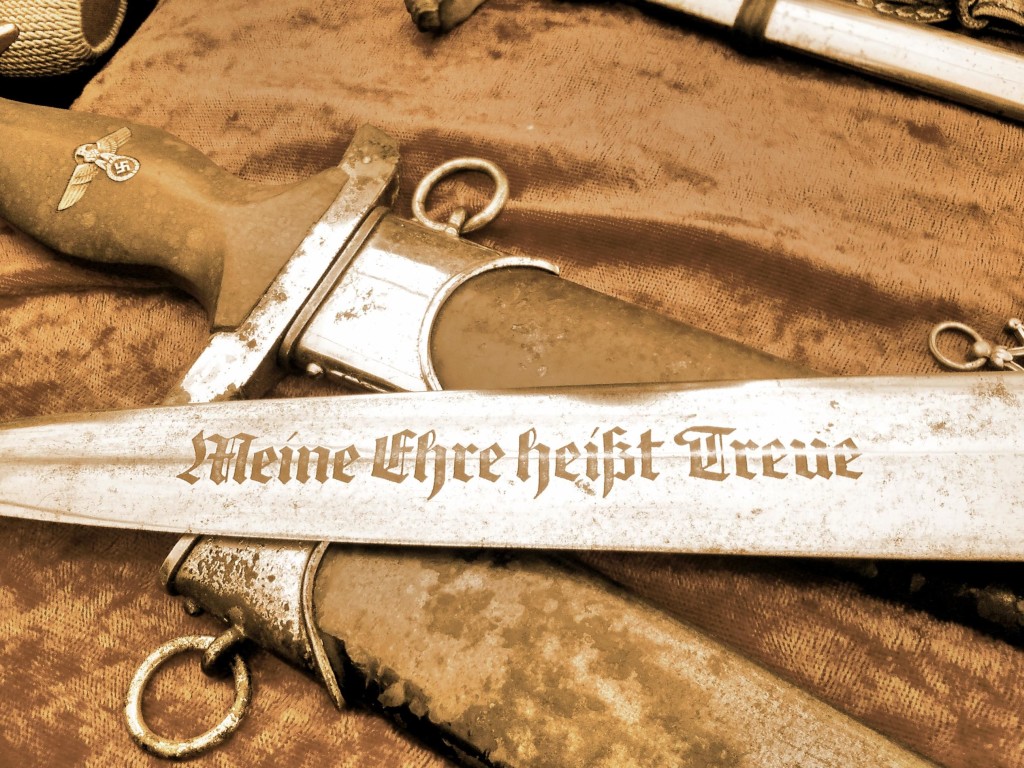
When one asks themselves the necessary question of who benefits from this ongoing witch hunt, the most obvious conclusion might be that the piece of “Jew soap,” more than anything else, smells like grist to the mill of those who control the small country of the Netherlands, a country that not without reason often has been called the Israel of the West – or like this site already wrote on this topic:
The timing of this story is very interesting considering the increasing amount of scrutiny the Jewish Holocaust hoax has been getting. You almost have to wonder if some of the people in the government know the score, and want the obviously fake nature of this soap to be another “I told you so” notch on the collective belt of holo-deniers.
 Daily Stormer The Most Censored Publication in History
Daily Stormer The Most Censored Publication in History


